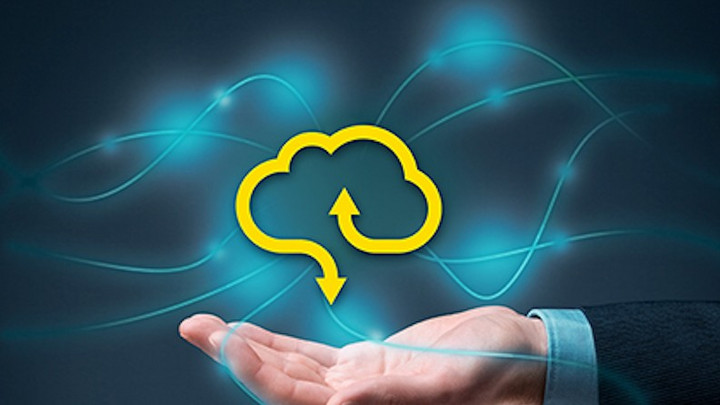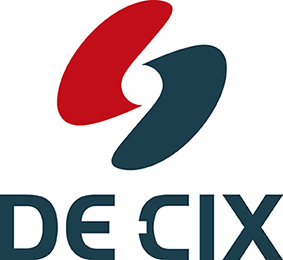Accessing Diverse Cloud Services and Securing Business Critical Applications - Transcript
Moving into the cloud offers companies enormous potential for cost savings and simplifying their company IT. At the same time, the cloud can pose its own risk, as companies need to be able to guarantee that their business-critical applications will have uninterrupted availability. In this modern business environment, simplifying access to the cloud is a logical step to support all players in the digital economy. dotmagazine spoke to Dr. Thomas King from DE-CIX about bringing Internet and cloud service providers together, and offering enterprises secure solutions.

Listen to the 10-minute interview here or download the audio for later
Transcript
DOTMAGAZINE: Thomas, the cloud has been around for quite a few years now, but it seems that there's a new boom in the cloud market. Why is that?
DR. THOMAS KING: There are a lot of cloud services nowadays that we are all using – for instance, starting with Facebook, going over to Dropbox for storing our files, and also going on – if you're in the computer science area – to services like Amazon AWS, where you can run your virtual machines, and store your data in databases, and things like that. So we have a variety of cloud services nowadays, and we see that these cloud services need special treatment in that, if we use them for our mission critical applications, we have to make sure that the data we want to send to these cloud services, this mission critical data is secured in a such a way that if there's an issue with Internet connectivity, like a DDoS or something, that it's not hurt by this kind of disturbance. So, we see a lot of new interconnection applications or businesses that start providing dedicated interconnection services to cloud service providers like, as I was saying, Facebook, Google, Amazon AWS, and things like that.
DOT: So, what are the range of cloud services that a company might need at its disposal – thinking about enterprises at the moment – and why might they need a variety of different cloud services?
KING: In the past, we were used to installing software which we needed to run – be it a CRM, or an ERP, or even an address book application – on our laptops or our computers which we're working on. And this is changing, because we realize that making sure that these applications run smoothly isn't so easy, and consuming the applications out of the cloud is a lot easier and a lot cheaper nowadays. So, we see that a lot of applications are now moving into the cloud and I would say all the applications you as an enterprise use today, you can find versions of that in the cloud as well. Be it SAP, or also Salesforce, it's just cloud application and there is nothing you can install on your local machine.
So, we already see a lot of variety of applications. And as I said the cloud versions are cheaper and easier to use and easier to maintain. And every single enterprise has to find its own rules for how it validates the different cloud services out there and to define which one is the right one to use for them.
DOT: DE-CIX has always provided peering services for interconnection. What is the logic now behind your expansion into the cloud market?
KING: The logic is that DE-CIX has provided interconnection services like peering already for more than 21 years. So we have a quite good understanding of the interconnection needs of our customers. And we are seeing that our customers – as they move into using cloud services – also want to have dedicated network connections to these cloud services, to make sure that if they run a business critical application like an ERP or CRM that, in case there is a massive DDoS attack in the Internet or some other glitch, it does not hurt their connection to the cloud service provider. And so, it’s a demand for dedicated cloud service connectivity that has emerged, and our cloud offering exactly fits that space in that it provides Internet service providers and also larger enterprises with an easy solution to get a dedicated interconnection service into the cloud.
DOT: So, how does the DE-CIX DirectCLOUD service work? What are the advantages for enterprises, ISPs, or cloud service providers from the service?
KING: The big advantage – and that matters equally for ISPs and cloud service providers – is, if you're connected to DE-CIX, you can reach already large numbers of cloud service providers and also a large number of Internet service providers. So, with one physical access to an infrastructure like DE-CIX, you can reach a lot of these cloud service providers and Internet service providers. So for instance, if you are an enterprise or an Internet service provider who wants to connect to, for instance, the large three hyperscalers, as we call them – Amazon AWS, Google Cloud and Microsoft Azure – then you can get this connectivity via DE-CIX with just one port, with one physical infrastructure. And the other way around, if you are a cloud service provider and you want to make sure that a lot of large Internet service providers can get access to you, as a cloud service provider, easily, then it makes sense to connect to DE-CIX because we already have more than 200 Internet service providers connected today at our DE-CIX interconnection platform, as we are in the business for 21 years already. So we have strong business relationships and both can build on that, that is ISPs and cloud service providers can build on that.
DOT: Thomas, how can companies ensure the security of their processes in the cloud?
KING: If you rely on cloud services for your business critical applications like ERP or CRM applications, then you have to make sure that these cloud services are available when you need them. And so, it makes a lot of sense to separate your data that goes into the Internet from the data that goes into the cloud. Because, if there's a hiccup with the Internet – we all know about the massive DDoS attacks we have seen in the past, and also routing hiccups, and things like that – if things like that happen, you want to make sure that your cloud service is still available. You can achieve that by using the DirectCLOUD service from DE-CIX, which separates exactly the two data streams – so the data that goes into your cloud service is secured against any hiccups that happen in the Internet. And this is why a lot of companies already rely on our service and I think we have a quite good service here to offer.
Then, besides making sure that you have separated data streams, you have to make sure that the data is encrypted to wherever you send it. It doesn't matter if it goes into the Internet or to a direct cloud service provider directly, you have to make sure that the data is encrypted because, you know, you send it over a public network, so to say. Probably, you don't know where the traffic is going and you want to make sure that, wherever it goes, it cannot be looked at. So make sure that it is encrypted.
Dr. Thomas King is Chief Innovation Officer (CIO) at DE-CIX since 2016. He started his career as Member of Technical Staff at DE-CIX in 2008. After a stint at 1&1 Internet AG and founding a startup company called audriga, Dr. King re-joined DE-CIX as Head of Research & Development in 2014 and was promoted in 2016 to the newly-created position of Chief Innovation Officer at DE-CIX.
Thomas King received an M.Sc. degree in Computer Science and Business Administration from the University of Mannheim, Germany in 2004, and a Ph.D. degree at the chair of Computer Networks from the University of Mannheim in 2008.



